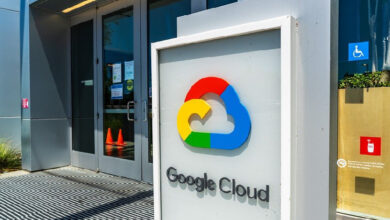Algorand Foundation Revolutionizes the Music Industry With Web3

- Blockchain enables decentralized music licensing for artists and transparent rewards.
- Fractional song ownership via blockchain revolutionizes revenue distribution in music.
- Music platforms empower fans to invest and engage with their favorite artists.
The music industry, like many others, is experiencing a blockchain-powered revolution. Blockchain technology is poised to address underlying issues such as fair royalties, music licensing, copyright management, and music ownership. The Algorand Foundation is leading this transformation in using blockchain to reshape the music landscape.
Blockchain is transforming the music industry 🎶
The internet changed the face of music.
From transparency to royalties, blockchain solutions are causing the next musical evolution 💭
Read the full blog 👇https://t.co/JvY25VAN2b
— Algorand Developers (@algodevs) November 12, 2023
Firstly, Blockchain provides a transparent and direct way for artists to license their music. Dequency, a decentralized licensing marketplace built on Algorand, enables musicians to set prices and receive instant, transparent payments when licenses are purchased.
Secondly, through blockchain, platforms like LimeWire, powered by Algorand, aim to bring back music ownership for both artists and fans. Creators can interact with their fans, offering exclusive content and music collectibles, while fans can directly support artists and trade these collectibles.
In addition, Decentralized music ecosystems can enhance interactions between artists and fans. Napster, a well-known P2P music platform, is being reimagined as a decentralized music ecosystem where artists receive a significant share of revenue. Fans can access exclusive content and engage with their favorite artists.
Furthermore, blockchain allows songs to have multiple owners, creating a microeconomy. The Song That Owns Itself (STOI) is an example of fractional song ownership, with tokens representing ownership shares. Token holders earn revenue based on the percentage of the song they own.
Lastly, blockchain platforms like Opulous and ANote Music enable fans to financially support artists by purchasing tokens or shares representing ownership in an artist’s work. These tokens appreciate in value as artists achieve success and generate royalties for token holders.
All in all, blockchain tech is revolutionizing the music industry by promoting transparency, ownership, and direct interaction between artists and fans. It offers a new asset class for music fans and empowers musicians to monetize their work in unprecedented ways. As the Web3 transformation continues, the music industry is set for a powerful evolution that benefits both artists and their dedicated fans.





